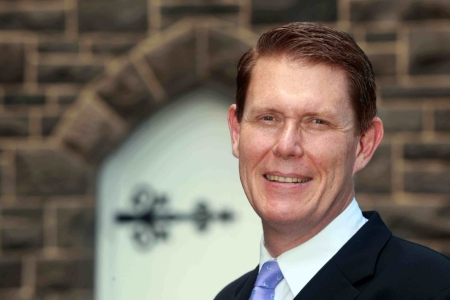Religious Liberty: For the Health of the Whole World
(Photo Credit: Set My People Free Organization)
Mark Durie is an Australian Anglican pastor, academic, and human rights activist. He is also very critical of Islam – especially on the issue of religious liberty.
His books, The Third Choice, Which God, and Liberty to the Captives outline his philosophy. But I interacted with him recently in an article for The Media Project about Kamal Fahmi, a Sudanese advocate for Christian converts born into Muslim families. I got to know Fahmi in Cairo, and he is soon retiring to his wife’s homeland of Sweden.
But he lived and campaigned his whole life in the Arab world, unusual for an international religious liberty activist. Mark Durie is a member of his board of directors, for Set My People Free.
Mark Durie, Australian Anglican Pastor
““Ultimately it is civilizational suicide for Western nations to take this approach, because this tolerated intolerance towards non-Islamic faiths is becoming ‘nativized’ within the post-Christian West.””
I only used one quote in the article, but Durie provided his full perspective of the importance of the issue.
“A world order that turns a blind eye to the abuse of fundamental human rights of ex-Muslims is a very sick system indeed,” he said.
“Ultimately it is civilizational suicide for Western nations to take this approach, because this tolerated intolerance towards non-Islamic faiths is becoming ‘nativized’ within the post-Christian West.”
““This can be a disheartening, discouraging, and frustrating burden to carry...not only for the believers themselves, but also for the health and honor of the whole world.””
It is an interesting point. Durie first got to know Fahmi at the time of the Danish cartoon crisis, when Muslims around the world rallied violently in protest. Fahmi noticed their zeal – over cartoons – and wrote in wonder why the West, and Christians in particular, was complacent over the treatment of converts in the Muslim world.
Durie spoke of ‘moderate’ governments who eagerly participate in interfaith dialogue and champion peace between the religions, yet deny the human rights of their own citizens who choose a different creed.
He spoke of ‘moderate’ governments whose economic openness and political cooperation is lauded by the West, which turns a blind eye to their blatant restrictions on religious liberty.
These and other violations are well known and criticized by human rights organizations and activists around the world. But many take them to be the price of good relations. Various arguments are offered pro and con, if nations should demand conformity to certain values in order to do business together.
But Durie’s quote above goes beyond concern for the victims. It is concern for those who let it slide.
“For many the culture of abuse of ex-Muslims is so pervasive and intimidating that it imposes acquiescence and silence on free people,” he said, “who ought to know better.”
It is for this reason he deeply respects Fahmi, who has taken up this challenge while resident in the Muslim world, laboring among diplomats to press upon them morally. Their nations, after all, are signatories of the United Nations Declaration of Human Rights.
But for Durie, the issue is far greater than the right of one person to believe what they want – even as human rights always concern the individual, each and every one of which is sacred.
It is a lonely battle, he laments, though much depends upon it.
“This can be a disheartening, discouraging, and frustrating burden to carry,” he said. “But it is vitally important, not only for the believers themselves, but also for the health and honor of the whole world.”

